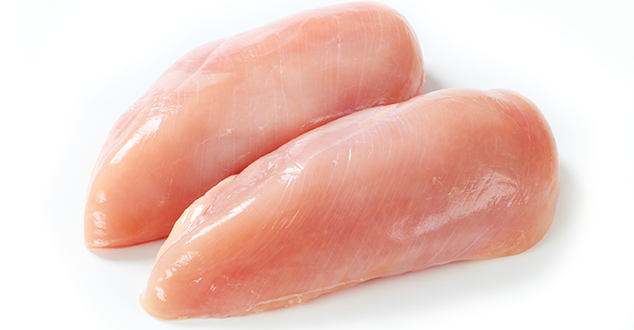
Chicken is a healthy, convenient meal and is Australia’s most popular meat with over 8 out of every 10 cooks choosing chicken. Other poultry is also becoming popular with just under half of those surveyed cooking whole turkey and 37% whole duck.
Remember that poultry includes not only chickens, turkey and duck but also quail, squab (pigeons), geese, pheasants, and guinea fowl. Chicken can also be sold as capons and spatchcock.
You should always take particular care when handling and cooking raw poultry as birds are small animals and their raw meat can be contaminated all the way through by food poisoning bacteria.
How to handle poultry correctly
You can reduce the risk of cross contamination from raw poultry by following these simple tips:
- Do not wash raw poultry before cooking as this will spread any bacteria throughout your kitchen. You can mop up any excess moisture with paper towel.
- Always wash and dry hands and clean surfaces after contact with raw poultry.
- Defrost poultry in the fridge or microwave in a container which prevents juices dripping on other food.
- Make sure the raw poultry juices do not contaminate other food, especially food like desserts or salads that won’t be cooked again.
- Always use clean plates and utensils and wash and dry thoroughly between using for raw and cooked poultry. Never place cooked food back on the same plate or cutting board that previously held raw poultry.
- Also cook any poultry meat to 75°C using a meat thermometer in the thickest part or until the juices run clear and are no longer pink. Make sure frozen poultry is defrosted right through to the centre before cooking.
Research
A Food Safety Information Council national survey showed 60% of home cooks in Australia are putting themselves at additional risk of food poisoning by washing whole poultry before it is cooked which spreads bacteria around the kitchen. A further 16% of those surveyed incorrectly tasted chicken to see if it was cooked properly rather than use a safe and accurate meat thermometer.
6 in 10 home cooks washed whole chicken before they cooked it, with 5 in 10 washing chicken pieces with skin on and 4 in 10 washing skinless chicken pieces.
Notified cases of illness from Campylobacter and Salmonella in Australia have almost doubled over the last 20 years. OzFoodnet estimates there are approximately 220,000 cases of Campylobacter infection each year with more than 75% transmitted by food and 50,000 cases of Campylobacter infection each year can be attributed either directly or indirectly to chicken meat.
